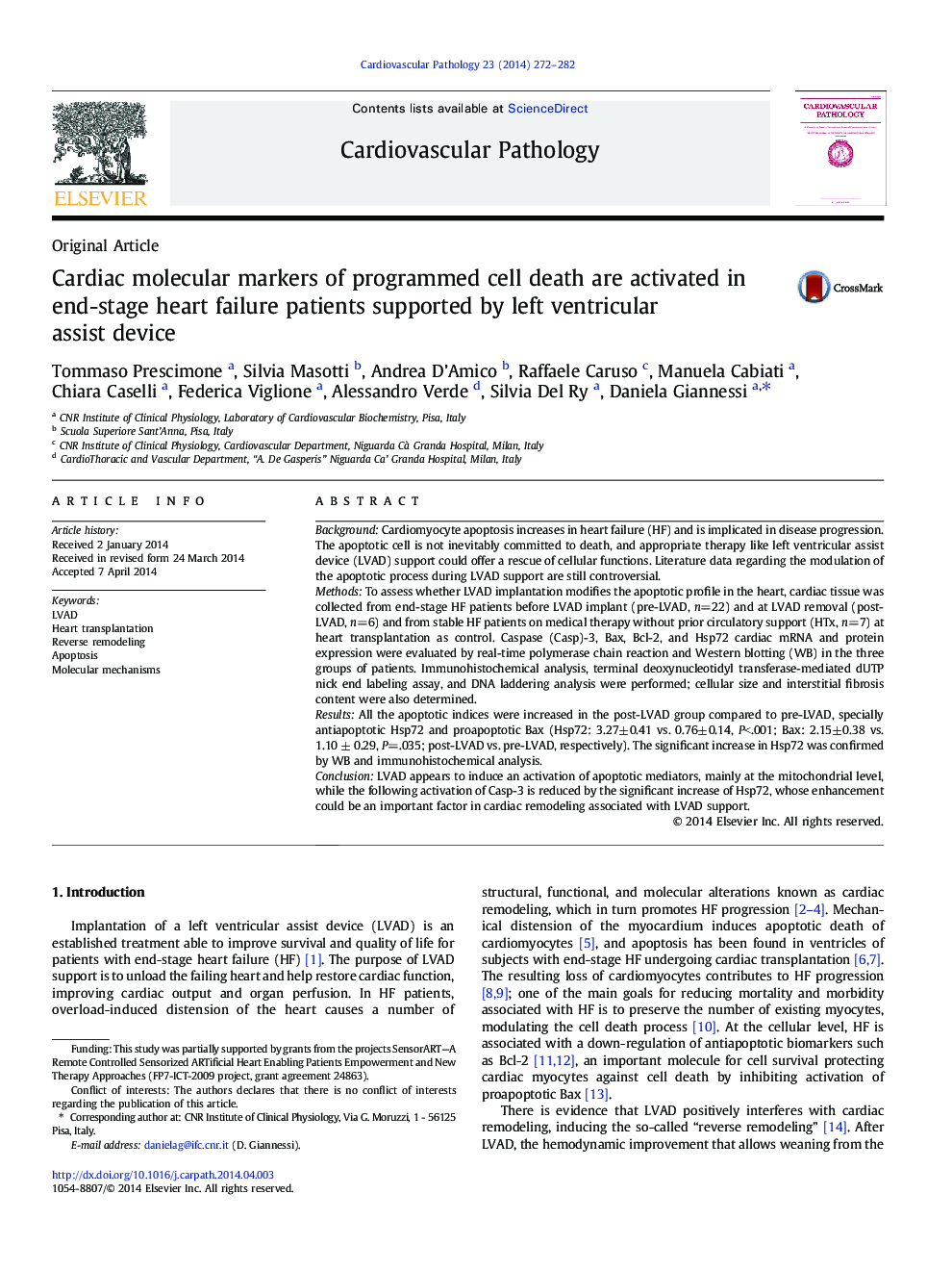| Article ID | Journal | Published Year | Pages | File Type |
|---|---|---|---|---|
| 2898734 | Cardiovascular Pathology | 2014 | 11 Pages |
BackgroundCardiomyocyte apoptosis increases in heart failure (HF) and is implicated in disease progression. The apoptotic cell is not inevitably committed to death, and appropriate therapy like left ventricular assist device (LVAD) support could offer a rescue of cellular functions. Literature data regarding the modulation of the apoptotic process during LVAD support are still controversial.MethodsTo assess whether LVAD implantation modifies the apoptotic profile in the heart, cardiac tissue was collected from end-stage HF patients before LVAD implant (pre-LVAD, n=22) and at LVAD removal (post-LVAD, n=6) and from stable HF patients on medical therapy without prior circulatory support (HTx, n=7) at heart transplantation as control. Caspase (Casp)-3, Bax, Bcl-2, and Hsp72 cardiac mRNA and protein expression were evaluated by real-time polymerase chain reaction and Western blotting (WB) in the three groups of patients. Immunohistochemical analysis, terminal deoxynucleotidyl transferase-mediated dUTP nick end labeling assay, and DNA laddering analysis were performed; cellular size and interstitial fibrosis content were also determined.ResultsAll the apoptotic indices were increased in the post-LVAD group compared to pre-LVAD, specially antiapoptotic Hsp72 and proapoptotic Bax (Hsp72: 3.27±0.41 vs. 0.76±0.14, P<.001; Bax: 2.15±0.38 vs. 1.10 ± 0.29, P=.035; post-LVAD vs. pre-LVAD, respectively). The significant increase in Hsp72 was confirmed by WB and immunohistochemical analysis.ConclusionLVAD appears to induce an activation of apoptotic mediators, mainly at the mitochondrial level, while the following activation of Casp-3 is reduced by the significant increase of Hsp72, whose enhancement could be an important factor in cardiac remodeling associated with LVAD support.
